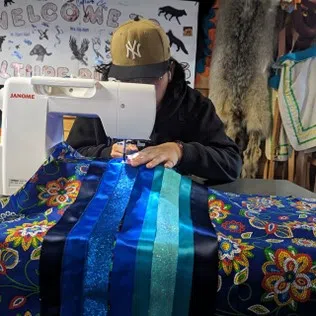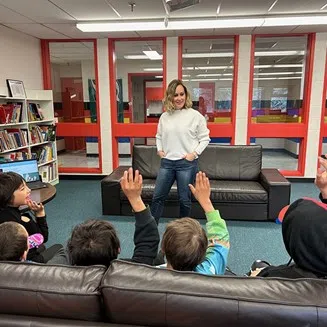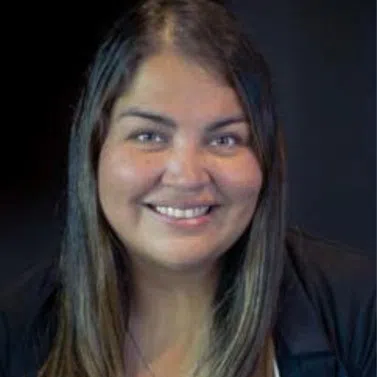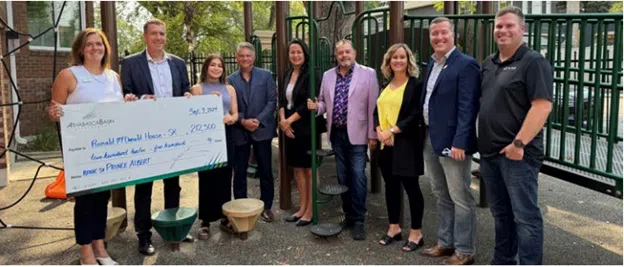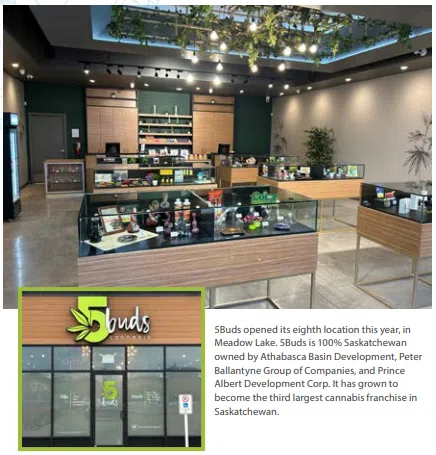Athabasca Basin News
Dziret’ái Pilot Training Program takes flight
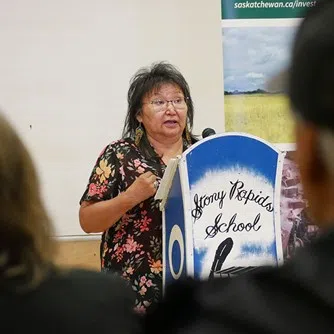
A new and exciting opportunity has launched in northern Saskatchewan to help Indigenous students become commercial pilots. The Dziret’ái Pilot Training Program aims to provide Indigenous students with the skills needed to succeed in the aviation industry.
The Dziret’ái Pilot Training Program has garnered significant support from various entities. Rise Air is investing $690,000, PAGC is contributing $315,000, and the northern Saskatchewan mining companies Cameco, Orano Canada, and SSR Mining are collectively investing $300,000. The federal and provincial governments are also backing this initiative with over $1 million in funding through PrairiesCan ($631,500) and the Saskatchewan Ministry of Immigration and Career Training ($375,000). This substantial financial backing will cover the comprehensive training costs, including tuition, flight hours, and resources.
The Dziret’ái Pilot Training Program is not just about flight training. It’s a comprehensive initiative that covers not only the technical aspects but also the universal needs of the students, ensuring their well-being and success. The program ensures northern students can focus on their studies without worrying about living expenses, covering accommodation, transportation to and from class, and travel back to their home communities for cultural events. With the support of the Athabasca communities through Ya’ thi Néné and PAGC, the program provides more than just an education. It offers wellness support and cultural guidance from Knowledge Keepers and Elders. With mentorship and mental health support services, this holistic approach acknowledges the unique challenges of being away from home.
“I hear a lot of youth applying and saying they’re excited,” said Coreen Sayazie, Chief of Black Lake First Nation. “[They’re saying] that this is something they’ve always wanted.”
The program will begin in fall 2024 with a pre-education program to prepare all the participants for success. For this first cohort, fifteen students have been accepted into the pre-education program, and 10 will be selected to start aviation ground school in January 2025.
This training will open up new career opportunities in an industry where Indigenous people have been traditionally underrepresented. “This program isn’t just about training pilots; it’s about helping Indigenous communities grow by offering opportunities and support,” said Brian Hardlotte, Grand Chief of the Prince Albert Grand Council. “It gives our young people a chance to lead, succeed, and feel proud of who they are.”
The training program was conceptualized in 2018 by Tracy Young-McLean, Rise Air’s Vice President and Chief Human Resources Officer. It will be delivered by Rise Air and the Mitchinson Flight Centre in Saskatoon. For Rise Air, one of Canada’s largest independent air operators, this program is a way to give back to the communities and grow capacity. Students will be trained and will learn from experienced instructors using state-of-the-art technology. “We’re excited to launch a program that can make a real difference,” said Derek Nice, President and CEO of Rise Air. “Aviation is important in the north, and we want to ensure Indigenous people are part of it.”
What started as an idea over six years ago was met with enthusiasm this summer, with 106 applicants after the launch of the application phase of the program. Fifteen students will take the pre-education, and 10 will move on through the training program. The students who graduate from the program in June 2026 will have secured their private and commercial pilot licenses and additional ratings required to become First Officers at Rise Air.
“We’re so proud of this program,” said Grand Chief Hardlotte. “We can’t wait to see our young people soar.”
“I want to see the day when they land in our communities,” said Rosalie Tsannie-Burseth, originally from Hatchet Lake First Nation and board member for Rise Air. “I told the Elders here that we’re playing the drums when those young Dene pilots land. The drums have to be there to celebrate the success.”
Flyer Electric receives SaskPower’s Supplier Recognition Award
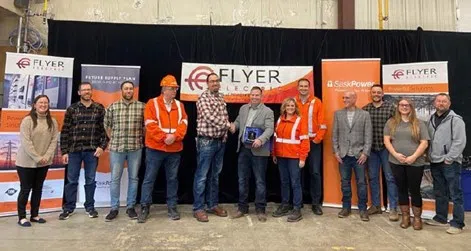
On October 26, Flyer Electric was awarded a Supplier Recognition Award from SaskPower. This award is given to suppliers who demonstrate consistent reliability, quality, and innovation.
“Flyer Electric is so deserving of this award,” said Alanna Whippler, Consultant, Indigenous Procurement with SaskPower. “We’ve had a long and valuable relationship with Flyer Electric. They’ve consistently done good, high-quality work for us in a competitive industry. Our business units have all given good feedback about the company and their work. Flyer Electric has really differentiated themselves in the electrical space, and we are thrilled to present them with our supplier recognition award.”
Flyer Electric started working with SaskPower in 2015. SaskPower had started an Indigenous procurement program, and had set up a full time unit dedicated to the task of implementing the policy. “We want to build relationships and get Indigenous suppliers integrated into our supply chain while also acknowledging their unique value. SaskPower is dedicated to being a leader in Indigenous engagement as an important step towards economic reconciliation,” said Whippler. “As some examples, we are certified by the Canadian Council for Indigenous Business (CCIB), we have a dedicated Indigenous Customer Care team, and we’ve done a lot of significant engagement activities in the north. We are currently expanding our evaluated Indigenous content for RFPs. We’re kicking off a pilot that will evaluate not only ownership and labour but Indigenous capacity building, things like recruitment, scholarships, sponsorships – things that incentivize Indigenous inclusion.” Flyer Electric is majority owned by Athabasca Basin Development and Sakitawak Development Corporation. “We were looking for qualified vendors and Flyer of course had been working with mines, so they had the safety certifications, the bonding capacity, and a lot of experience they were bringing to the table,” said Whippler. “We thought, this company was a no-brainer. But it wasn’t that simple, because they were in a very competitive space.”
In the beginning, Flyer had to prove themselves as a solid, competitive contractor. “Over the years, we have developed a really good working relationship with SaskPower,” said Terry Tessier, CEO of Flyer Electric. “We got started, like most companies, where we went after open tendered work, and competitively bid against other companies. We hadn’t established a relationship before that. We were successful on some bids. And through that we were able to get to site and execute the projects and show SaskPower what we actually could do as a company.”
“In the beginning, Flyer was doing things for us like security installs and other smaller jobs, but they really grabbed the opportunity and really differentiated themselves as a trusted supplier,” said Whippler. “Things really took off when they did fire detection and suppression installations at three northern hydro stations. They did a really good job. We’ve had a strong relationship since, including a recent five-year contract for doing electrical work for the refurbishment of our Coteau Creek Hydroelectric Station. This is a significant, long-term contract and an indication of our trust in their work.”
Flyer Electric has become known in the industry for their high quality of work and accurate bidding. “For SaskPower and really, all our customers, we continue to execute,” said Tessier. “We treat all our projects the way we think they should be treated: with great care and the quality of the work, and safety. We just maintain a respectful relationship. We make sure that what we say is what we do and I believe we are seen as a company with a lot of integrity.”
The award was presented at Flyer Electric’s Regina office. A group of about 30 SaskPower members were in attendance, along with Tessier and the other Flyer Electric staff, Rod Favel from the Touchwood Agency Tribal Council, representing Flyer Electric’s partnership with their group in Treaty 4, and Kristy Jackson, Director of Marketing & Communications for Athabasca Basin Development.
“Special thanks to the terrific SaskPower team that attended and presented this award to Flyer, and to our guests and staff for attending,” said Terry Tessier, CEO of Flyer Electric. “It was a nice event where everyone got a chance to meet our people, see our office, and have some lunch and network together. The people at SaskPower are fantastic to work with. They always make us feel like part of their team. We’ve had a great partnership with SaskPower for many years, and it is truly an honour for us to be recognized this way.”
Don Deranger retires
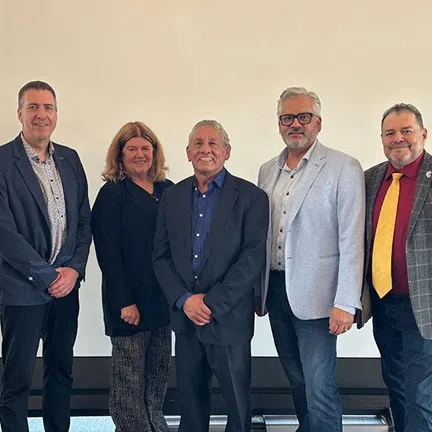
Don Deranger has retired from the Board of Directors of Points Athabasca and Cameco Corporation. Originally from Fond du Lac, Don has had a long and impactful career marked by a commitment to Indigenous communities, economic development, and leadership.
Don’s influence went beyond corporate boardrooms. As a Special Projects Coordinator for six years with Saskatchewan Northern Affairs in the 1990s, during which he helped set up the Athabasca Basin Development, and as former Athabasca Vice Chief of the Prince Albert Grand Council between 2003 and 2012, he was instrumental in advancing economic partnerships prioritizing community growth and sustainable industry.
His nearly 25-year leadership since the construction company Points Athabasca began illustrates his legacy of fostering meaningful employment opportunities for Indigenous peoples in northern Saskatchewan. “I have always believed in building strong partnerships that reflect our community’s values and future,” Don said.
Don is particularly proud of the first large contract that Points Athabasca secured for building the hospital and health centre in Stony Rapids in the early 2000s. “It was special because it was a big project right in our backyard to support our people and made by our own northern Indigenous company,” he said.
Don brought a wealth of experience in the mining, construction, and resource sectors when he joined Cameco’s board in 2009. Over his 15-year tenure, he contributed towards Cameco’s strategic direction, ensuring the company’s commitment to sustainable practices, Indigenous engagement, and community investment. “Working with Cameco has been a unique opportunity to ensure that Indigenous voices are not just heard but are integral to decision-making at the highest levels. I was there to ensure that our Indigenous protocols were followed, and that our values were considered when communicating with northern communities,” he said.
Beyond his board work, Don was a key advocate for Indigenous training and employment programs, believing local communities should benefit directly from industry presence. His role with Athabasca Basin Development and his advocacy for education, especially for young Indigenous people entering the workforce, have left an indelible mark.
“Our future lies in ensuring that young Indigenous people have access to education and opportunities that will allow them to thrive in today’s world. I wish I could have done more for the youth to get them involved in economic development and the communities so they would stay away from alcohol and drugs and instead build themselves up and support their people and communities. Youth must understand that they must be active and productive citizens. We must help them understand that it is their responsibility to balance economic development and protect our land, culture, and environment for future generations and our Athabasca region. If I could go back in time, I’d spend more time with the youth to tell them all of that,” Don said.
In reflecting on his career, Don is both proud and hopeful. “While I am stepping down, I know that the work will continue. We have built strong foundations, and I am confident that our partnerships will ensure that Indigenous communities continue to prosper. I look forward to seeing young people taking leadership roles, and I would be happy to sit down with any of them to share my experience and help them find their way in the future.”
Now, Don is finally taking time to relax, go fishing, and go fall hunting. “I just turned 69; hopefully, I can be around well into my 80s and enjoy a quieter life with my family,” Don said with a smile.
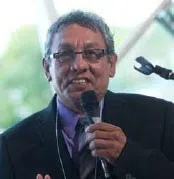


Kyle Remus joins Points Athabasca
By Glen Strong
Kyle Remus joined Points Athabasca as Vice President of Operations in February of 2024. Previously, Kyle held a Vice President role at one of Canada’s largest environmental contractors. With over 15 years of experience in the civil and environmental industries, he actively contributed to some of Canada’s most technically challenging and remote environmental construction projects. His experience spans across various industry sectors with a focus on mining, power generation, and civil construction. Kyle recently served as a board member with the Saskatchewan Environmental Industry Managers Association (SEIMA).
“We are happy to have Kyle join our team,” said Lyle Bouvier, CEO of Points Athabasca. “Kyle was the Vice President of Environmental Services at QM Environmental, responsible for their remediation and emergency response divisions, and now brings that expertise coupled with extensive project management experience to Points Athabasca, enhancing our bench strength as we expand into new markets.”
“While working in the far north, I strived to help build Indigenous inclusiveness and help develop capacity in the region. Points Athabasca is very focused on “Building Capacity” and giving back to the Athabasca communities. I am committed and pleased to be part of this vision,” said Kyle. “I look forward to a great future for the company as well as the regions that we work in.”
Lucy Fern selected as Wanuskewin Artist-in-Residence
This fall, Lucy Fern, a talented multi-media artist from Fond du Lac Denesuline First Nation and a single mother of three who now resides in Prince Albert, will be the Artist-in-Residence at Wanuskewin Heritage Park near Saskatoon. The Olivia & Greg Yuel Artist-inResidence program is a prestigious initiative designed to nurture and showcase Indigenous artists, offering them the space, time, and resources to create and inspire.
This fall residency was made possible thanks to a generous $6,000 donation from Athabasca Basin Development, which specifically aimed to spotlight artists from the Athabasca region.
“Being selected as the Wanuskewin Artist-in-Residence is both an honour and an incredible opportunity,” Lucy said. “It’s not just about creating art. It’s about telling the stories of my people, preserving our traditions, and sharing our culture with the world. I learned my art from my mother; she taught me everything about beadwork, making gloves and mukluks. She is my role model and my inspiration.”
In the past, Lucy didn’t always dedicate her time entirely to her art. She obtained a Bachelor of Indian Social Work with a minor in art. She also received a mental health and wellness certificate. After years of serving others as a social worker and participating in healing and sharing circles, she decided to brighten people’s lives through her art. “During and after university, I learned different media and wanted to develop that kind of mixed-media art. Now, I love what I do, and I love teaching it,” she said.
The residency will allow Lucy to work closely with the Wanuskewin community and visitors, giving her the space to create new works while also engaging with the public. Visitors will have the opportunity to witness her artistic process and learn about the cultural and historical significance behind her work. Lucy’s art draws heavily from her heritage, focusing on themes of land, identity, and resilience, making her a fitting representative of the Fond du Lac Denesuline First Nation and the broader Athabasca region.



